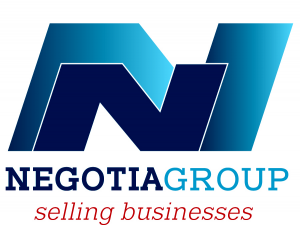Over 415,000 Australians expect to retire this year. Interestingly enough, this number does not represent all eligible retirees. In 2006 – 8% of people over 65 remained actively employed, in 2016 it had increased to 13%; the ABS say that by 2020 the number will be above 21%.
That “actively employed” figure contains Australia’s largest group of self-employed business owners and entrepreneurs. These people should be entering the “business exit to retirement” period but they are not. Interestingly enough, these baby-boomers – knowledgeable and astute business owners – have seemingly forgotten the job they set themselves to do last – exit with money!
We no longer think business-owners are simply ignoring that the time has now arrived to think about exit strategy. Rather, they do think of it… a lot. In our recent interviews we have learned the top 4 reasons that explain why reluctance to engage with the exist process:
- Our Identity is wrapped up in the business – it is who we are and what we do
- We are not as wealthy as we thought we would be
- We have no future mapped out after exit
- We don’t understand or trust the process
It is an unfortunate fact that greater than 50% of the business owners who contact Negotia to talk about exits, are doing so only after the freedom to exit at their own discretion and time-frame has been taken from their personal control. Family, business-slowdown, personal health problems, even death is beating many people to the punch.
Since we commenced Negotia in 2014, we have advised many owners on exiting. We have counselled wives whose husbands died at their desk; we have spoken to owners who have survived break-ups and heart-attacks; debilitating cancers, accidents, banks and industry collapse; – and after these events – people can do very little as their business withers and dies in front of them.
Selling a company is simply another business process. It evolves, just like product development, financing plans or customers walking through your door. The complexities and uncertainties emerge by seeking counsel from well-meaning but unskilled friends, engaging inexperienced colleagues and advisors to guide you; or selecting real-estate agents masquerading as business brokers to represent you.
On the flipside, if you are looking for industry understanding to help you harvest value; Professional Brokers have been building their systems and processes for just this purpose.
That knowledge, currency of experience and skills to get exactly these outcomes you need, is available.
The following issues emerged early 2017, and they are now very real. I am sure they will have even more impact on the exit process as we enter 2019.
Before engaging any representative – even the companies that have been in this industry for a while, ask how that person is confronting these topics right now. Because if their firm has no embedded responses – they have probably not yet worked out the solutions to these industry-wide problems and they cannot successfully help you.
Investment money is scarce
Since early 2017 investment finance has become harder to obtain; consequently, investment has become riskier and prices of small to medium businesses have dropped – in some segments by more than 30% – and the average broker has not yet twigged and can’t tell you the phone may simply not be ringing because you are outside the market looking in.
Sellers risks are increasing
Coupled with imposed scarcity of investment funds – is the growing use of a “Purchasers Qualification Questionnaire” This is a new process – introduced by buyer-agents as their present first step in the buy process.
Be aware; this is a detailed legal affidavit, required to be filled out by the seller and signed, before any scrutiny of the business and its finances occurs. It is a direct and proper response to unprepared and lazy agents and says “I am sick and tired of being fed rubbish, incomplete, wrong and misleading details and talking to owners trying to keep quiet about business weaknesses and problems.”
Buyers and their agents are savvy, risk averse individuals who are increasingly frustrated by lack of meaningful disclosure. Due diligence will not be simply satisfied by scanning last-years financials – in fact answers to more than 70% of the questions you will be asked will not be found in the P&L at all.
The emergence of “Earn-Out” clauses as standard terms.
Because sellers are unprepared – and taking too much time to respond to rational and intelligent due diligence questions, the earn out clause has become a standard response, and it may remain for a long time to come if sellers and their agents don’t get it together.
The “Earn-out Clause” is an effective risk mitigation tool for buyers who consider there is future risk. This process quantifies their risk and makes tangible what is at that point intangible. It is most simply explained as follows: –
Buyer-Seller will agree on a price – but some payment will occur “at settlement” and the remaining payment will occur into the future – anything up to two years.
Further, that future payment will only occur if certain terms (imposed hurdles) are met. These hurdles might be that something must happen (or must not happen) after the new owner takes possession. Most frequently the special condition or clause is linked to revenue and profit targets, clients, staff or operating process.
The forgotten job: Be Prepared
Given the vast choice – and large numbers of businesses for sale, you will simply be by-passed if you do not arrive at the negotiating table prepared, if you cannot immediately react and respond to your potential buyers’ questions.
If your business is to be seen as an attractive asset – worth pursuing by potential buyers, it means YOU HAVE: –
- Priced your business competitively: – A sure way to save both time and money when hitting the go switch, is to possess an accurate appraisal of business value – what it’s worth and why.
- Adequately prepared: Your selling information kit is locked and loaded in both pdf and paper trails; you have anticipated the questions and provided the answers.
- Adequate time and ability: You have created a marketing process and have the time to sieve the dreamers and predators from the bona-fide prospects. You can take yourself “out” of the business and devote time to the negotiating and settlement process.
Conclusion
Inevitably, all business owners must identify someone to transfer their ownership interest to. It could be to family members, co-owners, key employees, or even to an outside party … Yet unfortunately new released data says about 65% of long-term small businesses now simply shut the door and fold. Don’t let it be you!
There are ways to significantly increase the ultimate exit value and reduce costs when given enough time. THE ALTERNATIVE: When the time comes where you need to sell, the easiest and best-value options will be gone.
Kevin Lovewell is a Director of The Negotia Group. Kevin is committed to providing options and choices. If you are thinking how you might maximise the chance of successfully exiting your business in the next 1-5 years, the time to prepare is NOW!
Kevin Lovewell can be contacted on
0401 308 385
www.negotia.com.au
Copyright © Negotia Group and Kevin Lovewell




